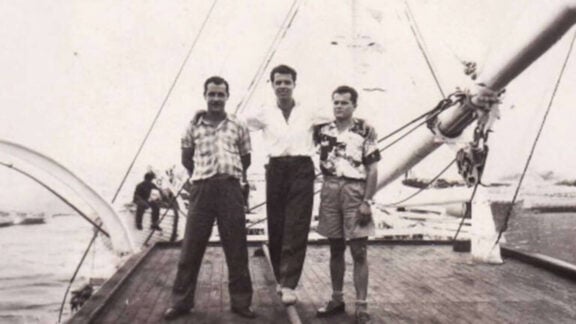International Women’s Day (IWD) is celebrated on 8 March every year to honor the achievements of women and to advocate for gender equality. IWD 2023 is an opportunity to celebrate the progress made towards gender equality while highlighting the ongoing challenges that women face around the world.
The theme for this year is “Choose to Challenge,” which encourages individuals to challenge gender bias and inequality in their daily lives. This theme emphasises the importance of individual action in creating a more equitable world. An opportunity to take stock of the progress made towards gender equality and renew commitments to address the remaining challenges, today -and every day- is a time to celebrate the accomplishments of women and recognise the contributions they have made to society.
Over the past few years, there have been some significant strides towards gender equality. Women have broken barriers in politics, business, sports, and entertainment, and their contributions have been recognised globally. More women are now in leadership positions, and girls have better access to education and health care than ever before.
However, despite these advances, gender inequality persists in many forms. Women continue to face discrimination, violence, and harassment in their personal and professional lives. The COVID-19 pandemic has also disproportionately affected women, with many losing their jobs and being burdened with additional unpaid care work.
Throughout history, Greek women have made significant contributions to the arts, sciences, and politics from the 7th century BC all the way to the 21st century. We chose seven historical figures that stood up for what they believed in and carved the way for many generations. These heroines influenced their timeline and continue to inspire to this day.
Sappho
Often referred to as the 10th muse Sappho is one of the most celebrated Greek poets, the first known woman to express emotion in its rawness, fearlessly. She is considered a trailblazer of female liberation. Born in the 7th century BC on the Aegean island of Lesvos, in the city of Eresos, she is known for her lyrical poetry, which explored themes of love, desire, longing, and friendship while she praised the beauty of nature. Born into an aristocratic family, Sappho received an education in poetry, music, and dance. She was known for her beauty and her skill as a poet, and she became the leader of a circle of young women who were also poets and musicians.
She wrote primarily in the Aeolic dialect of ancient Greek; much of her work has been lost over the centuries with most salvaged in fragments.

Hypatia
Hypatia was a prominent philosopher, mathematician, and astronomer who lived in Alexandria, Egypt during the 4th century AD. Daughter of Theon of Alexandria, he was one of the few women in ancient Greece to receive a formal education in a variety of subjects and went on to become a respected teacher and scholar. She wrote several books, including commentaries on works by the Greek mathematician Diophantus and the astronomer Ptolemy. An advocate for the rights of women and minorities and she was a prominent figure in the intellectual and cultural life of the city.
Seen as a threat to the status quo Hypatia’s life was cut short when she was brutally murdered by a mob of Christian extremists in 415 CE.
Aspasia
Originally from the city of Miletus in Asia Minor, Aspasia migrated to Athens as a young woman in the 5th century BC. Recognised for her beauty and her exceptional skills in rhetoric and philosophy, and she quickly became famous in Athenian society, even though she remained a controversial figure and was often vilified due to being a foreigner. She became close with Pericles, one of the most influential statesmen of ancient Greece with whom she had a son. She played an important role in Athenian politics and was a vocal advocate for women’s rights while celebrated as a talented orator, and is said to have influenced the writing of Pericles’ famous funeral oration. She was also a friend and supporter of many of the greatest philosophers and thinkers of the time, including Socrates and Plato.
Manto Mavrogenous
Mavrogenous played a crucial role in the Greek War of Independence against the Ottoman Empire. Born in Trieste, Italy, in 1796 to a wealthy Greek family she moved to Paros island when she was a child, and she grew up speaking both Italian and Greek. When the Greek War of Independence broke out in 1821, Mavrogenous was living in Nafplion, which had become the provisional capital of the new Greek state and she used her personal fortune to fund the building of ships and the purchase of arms for the Greek ‘kleftes’. She also personally recruited soldiers to fight in the war and provided food, clothing, and medical supplies to the troops. A skilled tactician and strategist, she proved a threat for the Ottomans. After the war, Mavrogenous continued to be active in Greek politics, advocating for democracy and social justice. She died in 1848 at the age of 52, but her legacy continues to inspire generations of Greeks and women around the world.
Laskarina Bouboulina
Another heroine of the Greek War of Independence against the Ottoman Empire, Laskarina Bouboulina was born on the island of Hydra in 1771 to a wealthy maritime family, becoming a shipowner herself, she used her wealth and connections to build ships and equip them for battle. She personally financed the construction of the ship “Agamemnon” which became one of the most important ships in the Greek fleet while personally recruiting sailors and soldiers to fight for freedom. She was the only woman to be named an Admiral of the Greek navy, and she was awarded the rank for her bravery and leadership in battle. She continued to be active in Greek politics, advocating for democracy and social justice until she passed away in 1825.

Maria Callas
Born on 2 December 1923 in New York to Greek immigrant parents, Maria Callas spent most of her young years in Greece. She received early musical training in Athens while she made her debut on stage in 1941 at the age of 17 in a production of Gioachino Rossini’s ‘The Barber of Seville’ quickly becoming the most revered opera singer of all time. Known for her powerful voice and dramatic performances, she became famous for bringing emotion and depth to her roles, allowing “imperfections” to enrich her storylines and make them more relatable. Callas is considered one of the greatest singers of all time. Callas’ life was turbulent, full of personal and professional challenges, including health issues, vocal struggles, and public scandals. According to her biography, her mother is said to have blackmailed her, her husband Giovanni Battista Meneghini stole from her, and shipping magnate Aristotle Onassis, the love of her life, was violent and abandoned her for Jackie Kennedy. Despite the real-life drama, she continued to perform until 1965 when she retired. Callas passed away in 1977 from a heart attack at the age of 53.
Melina Mercouri
Born on October 18, 1920, in Athens, Greece, Melina Mercouri began her career as an actress in the early 1950s, appearing in a series of popular Greek films. Her role on ‘Never on Sunday’ brought her an Academy Award while her performance in ‘Phaedra’, directed by her husband, the filmmaker Jules Dassin became an instant classic.

Mercouri was also a celebrated singer and stage performer before becoming an advocate for feminism, human rights and cultural preservation, becoming a prominent political figure during the years of the Greek Junta. The return of democracy saw her serve as Greece’s Minister of Culture and Sciences from 1981 to 1989, playing a key role in the effort to repatriate the Parthenon Marbles. Mercouri died of lung cancer on March 6, 1994, but her legacy continues to inspire to this day.








